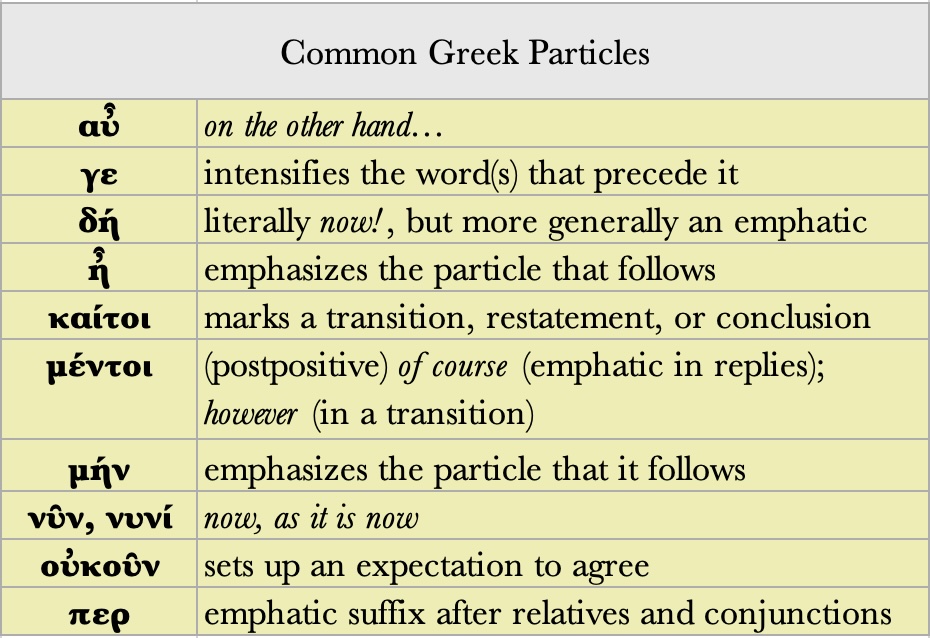45.1 One part of speech that is pervasive in much of Greek is the PARTICLE. Particles are words that have a grammatical function, but have little meaning on their own. In other words, while nouns, verbs, adjectives, and adverbs all have specific lexical – or dictionary – meanings, particles express grammatical relationships. For example, in English, the word to is often used as a preposition: I am going to the store. But the word to when used as part of an English infinitive – to go – is not a preposition, but a particle that grammatically marks the verb go as an infinitive.
Greek uses many more particles does than written English. Many of these Greek particles act essentially as sentence adverbs, serving either as sign posts that mark the underlying grammatical sentence structure, or providing an emotional emphasis to a word, clause, or sentence that expresses the mood or attitude of the writer. These particles provide a subtle and rich character to Greek that can sometimes be difficult to express in formal written English (S 2771, G 665). These particles often are best captured, in fact, in spoken English through the use of pitch, pauses, stress, and “spoken English” particles. For example, consider the “spoken English” particles alright and well in the following English sentences. What mood or attitude does each “spoken English” particle give to its respective sentence?
- Alright, let’s go to movies.
- Well, I didn’t do my Greek homework, yet, so maybe not.
45.2 The conjunctions δέ and μέν…δέ are, in fact, particles. Other particles include:


